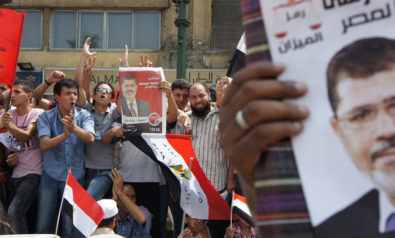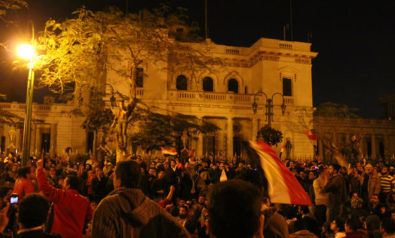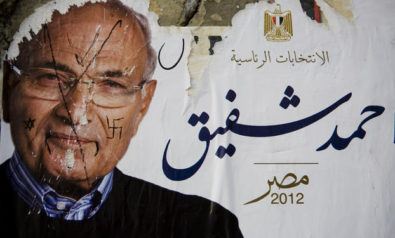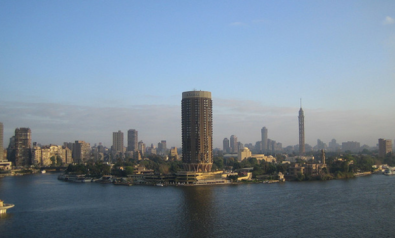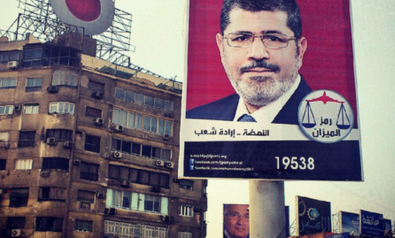Egypt’s presidential elections take place on May 23 and May 24 and hold significant implications for the country's future.
Background
In 1956, Gamal Abdel-Nasser was elected as Egyptian President with 99.9% of the vote, as the only candidate running. This was directly after a new constitution had been issued, which allowed Egyptians to approve or reject a presidential candidate through a public referendum system.
Following his death in 1970, Nasser was replaced by Anwar El-Sadat who established a new constitution that preserved the referendum system, but added that a candidate needed approval by two-thirds of parliamentary representatives.
When Sadat was assassinated in 1981 during a military parade, Hosni Mubarak succeeded him as president. He gained 98% of the vote in his first election through a referendum, and was then re-elected four times by the same system in his first 24 years in office.
In 2005, Mubarak was obligated to revise the constitution by instituting Egypt's first ever multi-candidate presidential election in place of the referendum system. This was done under pressure from the US government, led by former president George W. Bush. Supported by his ruling National Democratic Party (NDP), Mubarak won the election that year with 88% of the votes.
Finally, in February 2011, Mubarak was ousted from power following 18 days of demonstrations and labor union strikes. The Supreme Council of the Armed Forces (SCAF) has asserted power during the interim period until a new president is elected.
Why are the Elections Relevant?
Following Mubarak’s ouster, Egypt held parliamentary elections for the People's Assembly at the end of 2011. The Muslim Brotherhood’s Freedom and Justice Party won 47% of seats, while the ultraconservative Salafist Al-Nour Party came second with over 24% of the votes.
Formerly, the president was elected by the People's Assembly and confirmed by a referendum. However, after Mubarak's amending of the constitution in 2005, the president is now elected to serve a six-year term by popular vote.
Since Mubarak’s ouster, the SCAF has been in power and is led by Field Marshal Mohammed Hussein Tantawi. Although the former president was dismissed in early 2011, it is perceived by many that Egypt retains rulings and policies of the previous regime due to the ongoing military rule.
Meanwhile, the Supreme Presidential Electoral Commission (SPEC) disqualified 10 out of the 23 candidates. These included Omar Suleiman, the former Head of Intelligence, who did not garner enough votes. Calls from the Egyptian people to ban members of the NDP who served under Mubarak preceded the decision by the SPEC.
Ahmed Shafiq, however, served as Mubarak's prime minister but is still in the running for presidency. He was initially disqualified because of his association with the former regime, but had this decision overturned with a last minute appeal.
Khairat el-Shater, the Freedom and Justice Party’s official candidate, was disqualified due to past criminal charges. El-Shater was previously sentenced and imprisoned during Mubarak’s political crackdown, but released in February 2011.
Instead, Mohammad Morsi has replaced El-Shater as their back-up candidate. Morsi is the chairman of the Freedom and Justice Party, the Muslim Brotherhood's political wing.
Hazem Abu Ismail, an ultraconservative Salafist, was also disqualified because of his late mother's US citizenship, which violates one of the rules for candidacy.
Among the candidates still running are Abdel Moneim Aboul Fotouh and Amr Moussa. Dubbed as a “moderate” Islamist, Aboul Futuh is a former Muslim Brotherhood member, and is now being supported by the Salafi Al-Nour party, following Abu Ismail’s disqualification. He resigned from his work with the party after announcing his candidacy in 2011, due to the Brotherhood's decision at the time to not enlist a candidate. Moussa, an independent runner, served as Mubarak's foreign minister and as the secretary general of the Arab League.
The elections have the potential to act as a turning point for Egypt as the country aims to shift away from military rule. Until then, the future of the Arab world’s most populated country remains far from clear.
For more than 10 years, Fair Observer has been free, fair and independent. No billionaire owns us, no advertisers control us. We are a reader-supported nonprofit. Unlike many other publications, we keep our content free for readers regardless of where they live or whether they can afford to pay. We have no paywalls and no ads.
In the post-truth era of fake news, echo chambers and filter bubbles, we publish a plurality of perspectives from around the world. Anyone can publish with us, but everyone goes through a rigorous editorial process. So, you get fact-checked, well-reasoned content instead of noise.
We publish 2,500+ voices from 90+ countries. We also conduct education and training programs on subjects ranging from digital media and journalism to writing and critical thinking. This doesn’t come cheap. Servers, editors, trainers and web developers cost money.
Please consider supporting us on a regular basis as a recurring donor or a sustaining member.
Support Fair Observer
We rely on your support for our independence, diversity and quality.
Will you support FO’s journalism?
We rely on your support for our independence, diversity and quality.


